BBC How online extremists are shaping the minds of white teens 19 Aug 2019 By Ritu Prasad
「A mother expressed her concern about extremist content poisoning the minds of boys as they use the internet, in a post that went viral. She thinks there are warning signs parents should heed.」
うちの子の精神はインターネットの極端主義者的記事に毒されてやしないかしら―そんな意見がちょっとひと目をひいたというのだ。
「In an age where anyone can access just about anything on the internet, white boys in the US seem particularly at risk from dangerous radicalisation online.」
とりわけ白人男子が影響をうけるリスクが高そう、とかなんとか。なにしろ乱射殺人事件は多々起きるが、だいたい若くて白人で男だよな、犯人、って―ああ、うん、その。
「The dangers of the internet are not a novel talking point for parents and teachers, but these most recent tragedies have sparked renewed debate over what families can - and should - do when it comes to raising white boys in America.」
インターネットの害なんての、まあいまさらな話であって、とりわけ新しいわけではない。だが最近はちっと毛色がちがうぞ、と。
「She tells the BBC one of her two sons began to argue "'jokey'-toned alt right positions", asking questions like why black people could "copy white culture but white people can't copy black culture". 」
子供たちが、「なんで黒人は白人の文化をコピーしていいのに、白人が黒人の文化をコピーするのはダメだっていうのかな?」と冗談口のようにいい始まった、と。
ということで、この時点で既に気付くべきだ。昔のありがちな人種差別、「○○人なんぞ殺しちまえ」「○△人ごときが調子に乗るな!」「△△人は故国に帰れ! まあ、あればだけどな、ガハハハハ!」みたいな雑きわまりないものではない。思考の水準が上がっているのだ。
「"Not all jokes indicate your kid is buying into dangerous ideology," she says. "The bigger question for parents to ask themselves when their kids make racist, sexist or homophobic jokes is whether their kids understand the deeper implications of what they're saying."」
冗談口の全てが悪というわけではない。
そうだなあ、たとえば「ホモくせえwww」くらいは(ゲイとわかっている子を真ん中にして、まわりを3~5人とかで囲んで延々いびるとかでなければ)旧来的な「おとこらしさ」へと自己同一化をはかる・はかっていこうという意志表示ていどであろうかと思われ、他者の否定をわりと直接的に含んでいるのはよいとはいえないが、うんまあ、自己形成上、ありえることではあろう。
そうした水準まで差別で禁止だというなら、私はマッチョイズムを(多く)否認する方向で自己形成したが、これはマッチョイズム差別であって私の人格はその根本から差別主義者であるということになる。同様にゲイでもレズでも、そうある以外の形態を否定してそうなったからには、それ以外に対する差別的感情から形成されているってことになるのでそのように。
「Some experts say social media algorithms are fuelling a worldwide rise in extremist views or conspiracies by creating echo-chambers online. And while it's certainly not just boys who are affected by internet propaganda, in the US at least, it seems that it is driving young men in particular to lash out most violently.」
オンライン・メディアはアルゴリズムからして同じ系統の記事を集めがちだしさ、とか。
「Scolding did nothing to curb the behaviour, so Mr Rademacher invited them for a discussion over lunch instead.」
叱るのはあんまり意味がない。そうじゃなくちゃんと話そうよ、というわけだが―相手に聞く耳があればの話ではあるな。「トランプは狂人だ」に全て帰着する思想だとかでは、本気でどうしようもないのだ―大人側も子供側も。
「"They're still young boys," Mr Rademacher emphasises. "They're trying to figure out where the line is. Why things are funny and why things are offensive." And white teenagers are "ripe for radicalisation" now amid broader cultural changes that make them "feel like they're under attack" from mainstream society, he says.」
ということで、彼らは現在、学習中なのだ。それを踏まえたうえで教育・指導をすべきなのである。断罪するのではなく。世間には断罪・執行人希望者がうごめいていて、白人(多数派)であることだけで攻撃されているかのごとく誤解しがちな傾向にあるかもしれない若者たちを、なんとか善導するよう心がけるべきなのである―文化の変動期であることを承知しつつ。
「A mother expressed her concern about extremist content poisoning the minds of boys as they use the internet, in a post that went viral. She thinks there are warning signs parents should heed.」
うちの子の精神はインターネットの極端主義者的記事に毒されてやしないかしら―そんな意見がちょっとひと目をひいたというのだ。
「In an age where anyone can access just about anything on the internet, white boys in the US seem particularly at risk from dangerous radicalisation online.」
とりわけ白人男子が影響をうけるリスクが高そう、とかなんとか。なにしろ乱射殺人事件は多々起きるが、だいたい若くて白人で男だよな、犯人、って―ああ、うん、その。
「The dangers of the internet are not a novel talking point for parents and teachers, but these most recent tragedies have sparked renewed debate over what families can - and should - do when it comes to raising white boys in America.」
インターネットの害なんての、まあいまさらな話であって、とりわけ新しいわけではない。だが最近はちっと毛色がちがうぞ、と。
「She tells the BBC one of her two sons began to argue "'jokey'-toned alt right positions", asking questions like why black people could "copy white culture but white people can't copy black culture". 」
子供たちが、「なんで黒人は白人の文化をコピーしていいのに、白人が黒人の文化をコピーするのはダメだっていうのかな?」と冗談口のようにいい始まった、と。
ということで、この時点で既に気付くべきだ。昔のありがちな人種差別、「○○人なんぞ殺しちまえ」「○△人ごときが調子に乗るな!」「△△人は故国に帰れ! まあ、あればだけどな、ガハハハハ!」みたいな雑きわまりないものではない。思考の水準が上がっているのだ。
「"Not all jokes indicate your kid is buying into dangerous ideology," she says. "The bigger question for parents to ask themselves when their kids make racist, sexist or homophobic jokes is whether their kids understand the deeper implications of what they're saying."」
冗談口の全てが悪というわけではない。
そうだなあ、たとえば「ホモくせえwww」くらいは(ゲイとわかっている子を真ん中にして、まわりを3~5人とかで囲んで延々いびるとかでなければ)旧来的な「おとこらしさ」へと自己同一化をはかる・はかっていこうという意志表示ていどであろうかと思われ、他者の否定をわりと直接的に含んでいるのはよいとはいえないが、うんまあ、自己形成上、ありえることではあろう。
そうした水準まで差別で禁止だというなら、私はマッチョイズムを(多く)否認する方向で自己形成したが、これはマッチョイズム差別であって私の人格はその根本から差別主義者であるということになる。同様にゲイでもレズでも、そうある以外の形態を否定してそうなったからには、それ以外に対する差別的感情から形成されているってことになるのでそのように。
「Some experts say social media algorithms are fuelling a worldwide rise in extremist views or conspiracies by creating echo-chambers online. And while it's certainly not just boys who are affected by internet propaganda, in the US at least, it seems that it is driving young men in particular to lash out most violently.」
オンライン・メディアはアルゴリズムからして同じ系統の記事を集めがちだしさ、とか。
「Scolding did nothing to curb the behaviour, so Mr Rademacher invited them for a discussion over lunch instead.」
叱るのはあんまり意味がない。そうじゃなくちゃんと話そうよ、というわけだが―相手に聞く耳があればの話ではあるな。「トランプは狂人だ」に全て帰着する思想だとかでは、本気でどうしようもないのだ―大人側も子供側も。
「"They're still young boys," Mr Rademacher emphasises. "They're trying to figure out where the line is. Why things are funny and why things are offensive." And white teenagers are "ripe for radicalisation" now amid broader cultural changes that make them "feel like they're under attack" from mainstream society, he says.」
ということで、彼らは現在、学習中なのだ。それを踏まえたうえで教育・指導をすべきなのである。断罪するのではなく。世間には断罪・執行人希望者がうごめいていて、白人(多数派)であることだけで攻撃されているかのごとく誤解しがちな傾向にあるかもしれない若者たちを、なんとか善導するよう心がけるべきなのである―文化の変動期であることを承知しつつ。










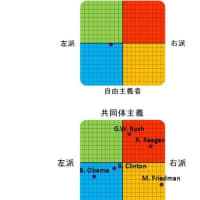
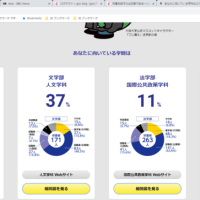
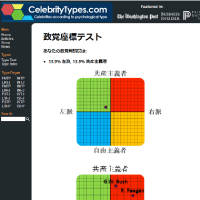

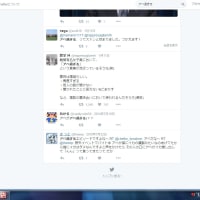

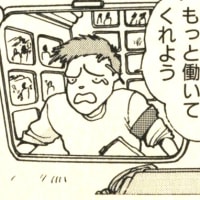

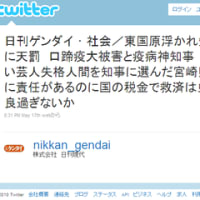
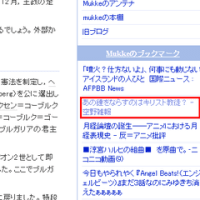





※コメント投稿者のブログIDはブログ作成者のみに通知されます